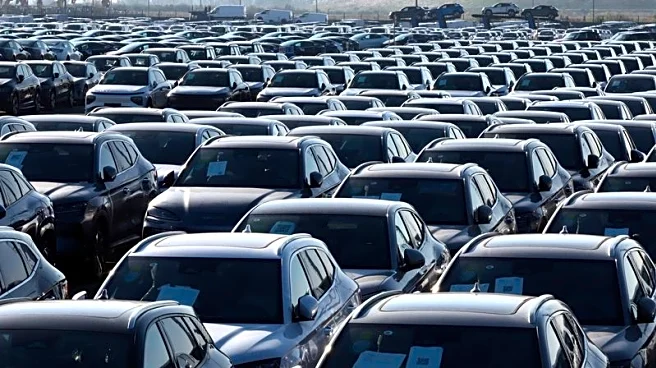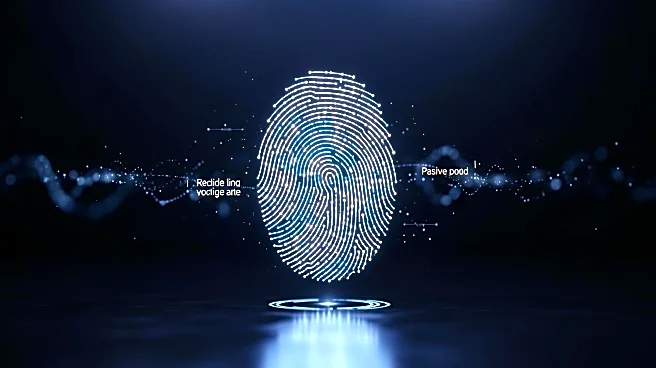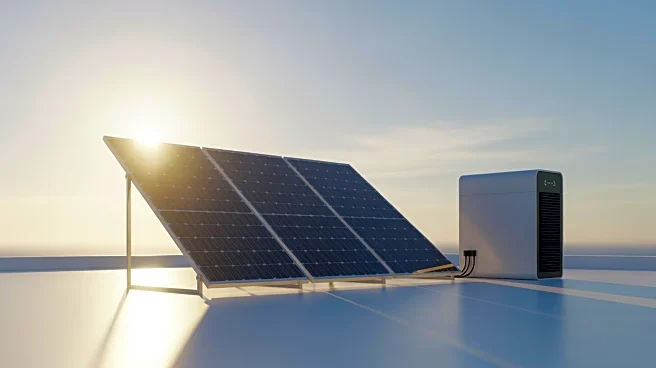By Nick Carey
MUNICH (Reuters) -Blocked from the U.S. market, Chinese self-driving technology firms are accelerating their push into Europe, setting up headquarters, striking data deals, and road-testing
- prompting alarm from local rivals over competition concerns.
In China, the world's largest car market, more than half of cars sold - including many entry-level models - now offer autonomous driving technology, sometimes as standard.
Beijing is pushing its companies to dominate autonomous-vehicle development globally while crafting national regulations to provide a clear roadmap at home.
That expansion is already underway. Reuters spoke to a dozen company executives who described how Chinese firms are using Europe as a beachhead for global expansion, mirroring the push with electric vehicles.
"We're focusing on Europe for our global future," said Dong Li, chief technology officer of QCraft, which announced plans for a new German headquarters at last month's Munich auto show, citing a more open environment than in the United States.
"There are barriers in the U.S. market," he said, referring to U.S. national security concerns over the data that autonomous driving systems collect.
Europe offers a more open regulatory environment, the companies said, although driver-assistance systems there are currently limited to a few luxury models and developers complain about patchwork regulation.
European Commission President Ursula von der Leyen called on Friday for a continent-wide push to develop self-driving cars, acknowledging they were already a reality in the United States and China.
"The same should be true here in Europe," she said.
CHINESE FIRMS TARGET EUROPE FOR GROWTH
QCraft, a Beijing-based startup that supplies driver-assistance systems, is working with Chinese and European automakers and expects to sell its technology in Europe within two years.
Buses in 26 Chinese cities operate QCraft's Level-4 autonomous technology, meaning they can drive for extended periods without human intervention.
Deeproute.ai, another Chinese firm focused on supplying Level-4 technology to automakers, plans to build a European data center once it secures deals now under discussion with European and Chinese automakers.
Leading Chinese autonomous-tech developer Momenta, which supplies systems to automakers including Toyota and General Motors, has partnered with Uber to start testing Level-4 technology in Germany next year.
Momenta announced in September it will supply driver-assistance technology for Mercedes-Benz in China, starting with the electric CLA sedan. Mercedes has started testing the same technology in Europe, two sources familiar with the matter told Reuters.
Momenta "has its eye on that prize: Europe", one of the sources said.
EUROPEAN STARTUPS WANT FAIR COMPETITION
Other leading Chinese self-driving players including WeRide, Baidu and Pony.ai are also expanding in Europe, said Yvette Zhang, automotive consultant with research firm AlixPartners.
Like Chinese EV makers, they see an opportunity to generate higher profits than they can make in China's overcrowded market.
"Investors expect growth," she said. "They are looking for other markets to grow."
Some European rivals want subsidies and protectionist trade policies while others recognise that Chinese competition could sharpen technology industry-wide and accelerate Europe's lagging development.
Jim Hutchinson, CEO of British startup Fusion Processing, which plans Level-4 driverless bus tests next year, argues for stricter oversight, citing national-security and competitive concerns.
"If we want to have this technology, we need higher levels of regulation and a bit of intervention for a level playing field," Hutchinson said.
'EUROPE IS THE ONLY MARKET THEY CAN COME TO'
Advanced driver-assistance systems that remain pricey in Europe are being offered cheaply – even free – in China by automakers looking to differentiate themselves in the price war.
According to research firm Canalys, about 15 million cars sold in China this year - more than 60% - will have Level-2 technology, which allows automated driving under certain conditions but requires human drivers' attention.
Chinese regulators in June approved nine automakers for public-road testing of Level-3 systems that allow drivers to look away in most circumstances.
Following a U.S. ban on China connected-car technology under President Joe Biden, European governments have been seen as more accommodating to Chinese cars and technology, said Tu Le, founder of consultancy Sino Auto Insights.
"Europe is the only market they can come to," he said. "They have to make their move."
Alex Kendall, co-founder and CEO of European autonomous-tech firm Wayve, advocates for an open market with streamlined regulations. Chinese competition, he told Reuters, will accelerate growth in a fledgling industry.
"How many autonomous vehicles are there in the world today? Not many, right?" Kendall asked. "Even if you're in some subset of the world, there's acres of space to grow."
At September's Munich auto show, Chinese self-driving firms including Momenta, QCraft, Horizon Robotics and DeepRoute.ai showed up in force for the first time, alongside Chinese EV makers, to tout their low-priced systems.
Momenta's Level-4 testing with Uber will start in Munich, the hometown of BMW, which partners with Momenta in China. The Uber partnership is the "starting point for a broader rollout across Europe," Momenta's European chairman Gerhard Steiger said at the show.
DeepRoute.ai CEO Maxwell Zhou echoed that ambition in an interview: "Europe is a huge market," he said. "It's very important for us."
EU SEEKS UNIFIED RULES TO COMPETE GLOBALLY
Europe's self-driving technology firms are testing their own systems but most European countries do not allow public deployment of anything beyond basic Level 2 systems that require drivers to maintain control at all times.
The European Commission is aiming to harmonize a fragmented regulatory landscape for testing and eventual deployment of more sophisticated systems. For now, such testing is limited to a few markets including Britain and Germany.
Berlin-based startup Vay is currently testing self-driving technology for robotaxis and buses in Germany and runs a remotely-driven rental car service in Las Vegas and with D'leteren's car rental unit Poppy Mobility.
Vay co-founder Fabrizio Scelsi supports the EU push for simplified regional regulations and calls for more government backing to bolster domestic players while embracing foreign innovation.
He said Chinese competition will force "European players to sharpen their strategies very quickly," as the race for autonomous dominance shifts gear.
(Reporting by Nick Carey; Additional reporting by Rachel More and Norihiko Sihrouzu; additional reporting by Daniel Leussink in Tokyo. Editing by Adam Jourdan, Brian Thevenot and Elaine Hardcastle)












